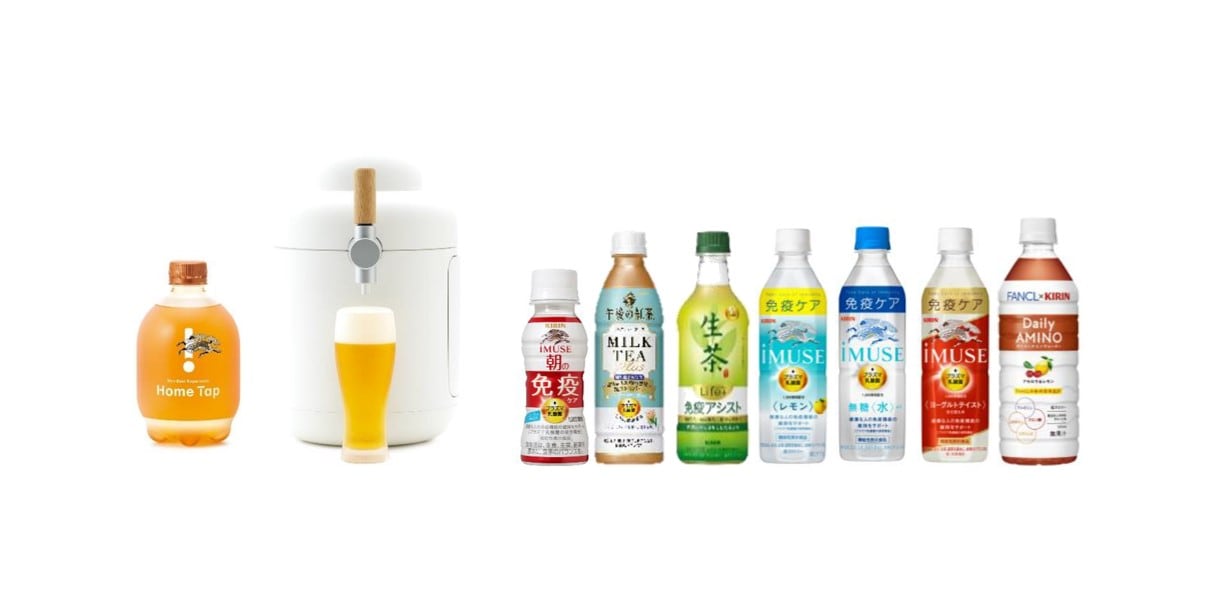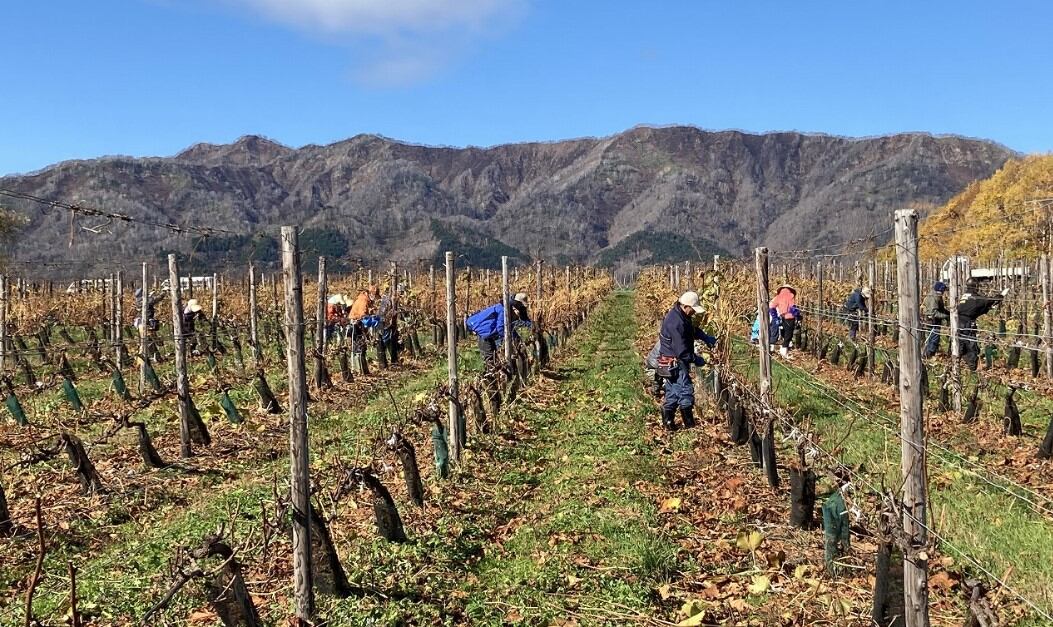Japan is in the process of revising taxes across liquor products, by reducing taxes on regular beer (50% malt or more) and increasing taxes for RTD (canned cocktails), wine, alongside so-called ‘new genre’ and happoshu products. The aim is to unify taxes across the categories by October 2026, which is expected to drive demand for beer in Japan.
Based on this, Kirin Brewery expects its beer sales volume to increase 26% in 2022, 1% for new genre, 9.5% for RTD, 8.7% for spirits, 17.8% for non-alcoholic beverages. The only category expected to perform poorly this year is low-malt beer (happoshu), with a 6.9% decrease in sales volume from last year.
One of the ways Kirin Brewery is hoping to make beer more attractive is through Home Tap, its craft beer dispenser for home-use. Home Tap can pour silky and creamy foam mimicking the beer experience at bars and restaurants. Kirin’s craft beer compatible with Home Tap include Grand Kirin IPA, Grand Kirin White Ale and Brooklyn Lager.
This year, craft breweries in Japan will also be participating in the Home Tap service such as Yona Yona Ale, one of Japan's leading craft beers.
“Through this service, we hope to transform beer as opposed to happoshu or new genres into an attractive and valuable offering, leading to the renewed growth of the beer market,” said Naoto Kobuna, manager at Kirin Brewery’s corporate communications department.
For happoshu, the tax rate is scheduled to be unified with that of beer in 2026, but as of now, “we believe this category will remain popular with low-price conscious consumers,” Kobuna added.
He told FoodNavigator-Asia that the new genre category may in time also follow happoshu’s footsteps with decreased sales.
For Kirin Brewery, the strategy this year is popularising craft beer and aiming for a year-on-year increase in total beer sales volume.
Beverage business
For Kirin Beverage which produces tea, coffee, soft drinks and health beverages, the plan this year is to strengthen the health drink business.
Last year, sales volumes of soft drinks and tea products were down from the previous year.
So in 2022, it is banking on the immune care area, which is beverages containing LC-Plasma as a source of growth.
LC-Plasma short for Lactococcus lactis strain Plasma is Kirin’s proprietary functional ingredient backed by research to support maintenance of the immune system by stimulating plasmacytoid dendritic cells. LC-Plasma is the key ingredient in Kirin’s iMUSE range of supplements, yoghurts, and beverages which is Japan’s first-ever brand registered as a Food with Function Claim for immune function.
Last year, sales volume of beverages containing LC-Plasma increased 66% year-on-year.
Akihisa Koyama, who is a manager at Kirin Beverage’s corporate communications department, said immune care awareness has been growing among consumers in Japan.
“According to our survey, more than 90% of Japanese consumers are aware that maintaining their immunity leads to good health, and "immune care" ranked first among their newly-adopted lifestyle habits towards good health in the past year. This suggests that interest in immunity is growing against the backdrop of the recent rise in health consciousness.”
The good performance of LC-Plasma beverages last year was led by the iMUSE brand, as well as the popular brands of Kirin Gogo-no-Kocha Milk Tea Plus and Kirin Nama-cha Life Plus Immunity Assist.
“These were launched in October 2021 to make them easily available for users who are interested in immune care but have not yet tried any immune-related products yet, resulting in an increase in trial purchases by a wide range of consumers. These brands are highly familiar with consumers, and offer gateways for entry-level consumers curious about immunity health,” he added.
This year, the aim is to increase sales volume of beverages containing LC-Plasma by 42%.
“In 2022, we will work to further instill an immune care habit in Japanese consumers by launching Kirin iMUSE Morning Immune Care nationwide, which was launched exclusively at convenience stores in the Tokyo metropolitan area in December last year. We will also continue to focus on research into other possible benefits of LC-Plasma,” Koyama said.
Kirin has also invested JPY10 billion (US$87 million) in the Shonan Plant, located in the Kanagawa Prefecture. It is the manufacturing base for Kirin Beverage's PET-bottled beverages, and the new investment will enable the plant to manufacture small (100ml) PET-bottled beverages.
For Kirin Beverage, vending machine sales expected to continue to decline this year.
According to Koyama: “Fewer people are using vending machines to grab a quick beverage on the way to or from work because many are working from home. Companies that experienced the work from home based work style stemming from COVID-19 are unlikely to return to the previous work style even after the pandemic is controlled.
“So, the vending machine market is expected to shrink in size, and companies will have to flexibly restructure their vending machine channel infrastructure to accommodate this. We will continue to develop vending machine marketing that incorporates sales and added value.”
This year, the business will also focus on sustainability, this means establishing a plastic recycling system, and reusing plastic bottles. Kirin and retailer Lawson are currently trialing a PET bottle recycling collection machine.


